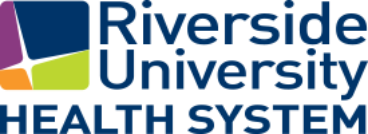OGME 5
PGY-5 Goals
During this final year, the fifth-year resident always functions as the Chief of service. Responsibility for all clinical activities of service, inpatient and outpatient care, as well as all operating room activity is given to the resident. The coordination of all resident activity and the oversight of the care provided is the resident's responsibility, working directly with the Chief of Service and other members of the teaching faculty. The roles of primary surgeon and first assistant continue in the operating room, depending on the complexity of the case.
PGY-5 Residents Should Demonstrate The Ability To
- Develop knowledge and skills necessary to assume complete responsibility for the management of the orthopaedic patient, including mastery of the fundamental components of surgery as defined by the American Osteopathic Board of Orthopedic Surgery/American Board of Orthopedic Surgery (achieves acceptable score on written and oral examinations and receives acceptable evaluations).
- Demonstrates proficiency in the management of complex problems in orthopaedic surgery and treats complex problems in the discipline with minimal help.
- Continue developing a working knowledge of the core competencies and complete the assigned curriculum in each area.
- Demonstrates personal and professional responsibility, leadership skills and interpersonal skills necessary for independent practice as a specialist in orthopaedic surgery and successfully manages the chief resident services.
- Outline key professionalism principles as presented in the College's "Code of Professional Conduct" and apply it to everyday caring for patients.
- Continue life-long habits of self-assessment, self-directed learning and reflection upon what has been learned to consciously change behaviors and practices that can improve patient care.
- Incorporate good communication skills in their daily practice.
- Develop skills to organize and manage a practice after residency.
Instructional Methods
Instructional methods include:
- Clinical teaching rounds
- Weekly conferences
- Operating room supervision
- Orthopaedic grand rounds
- Journal club
- Morbidity and mortality/Department meeting
- Self-assessment exams
- In-training exam and review
- Anatomy dissection
- Monthly saw bones labs
- Quarterly cadaver skills labs
- Proficiency labs
Assessment Methods
- Feedback will be given by the attending staff through daily evaluation in both the operating room and clinic setting
- The resident will collect cases for morbidity and mortality conference, and present to the faculty in order to improve patient management and outcomes in the future
- Evaluations using global assessment form based on the six core competencies will be reviewed with each resident by the program director
- 360 degree evaluations will be performed and reviewed semi-annually by the program director
- OrthoBullets PASS Program; weekly quizzes, monthly exams and milestone skills evaluations
